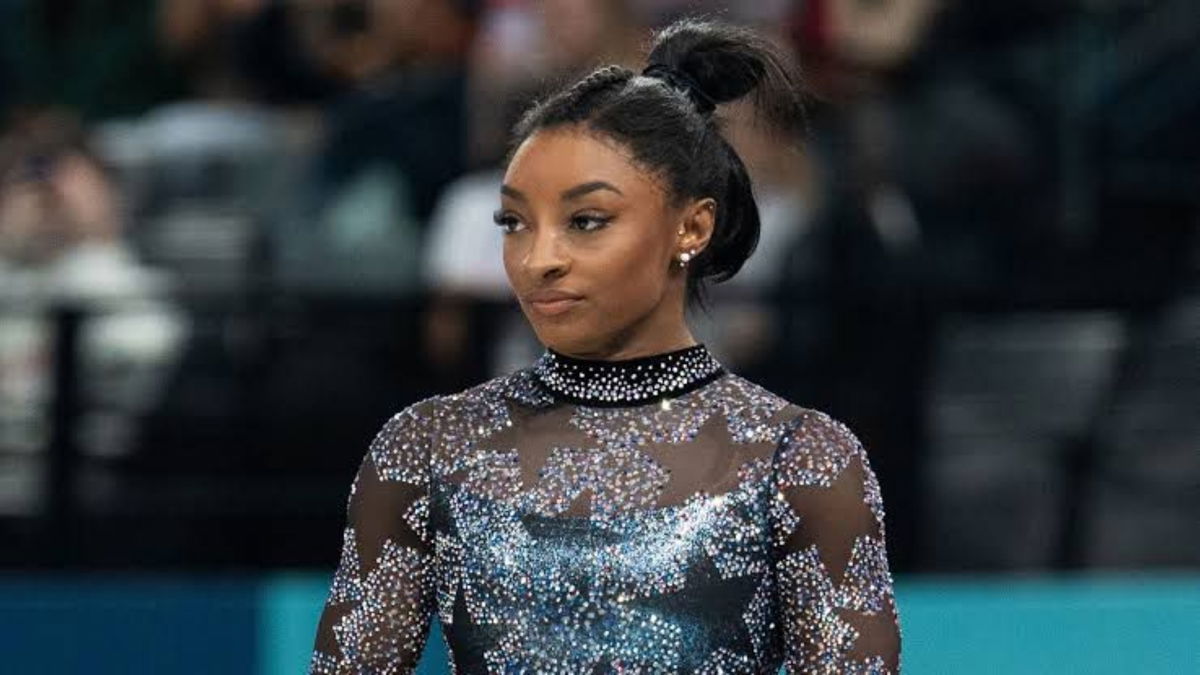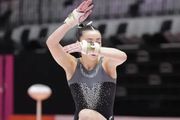

The assertion that “there is no health without mental health” really resonates with everyone, regardless of age. A study released in 2023 found that nearly two-thirds (65%) of Gen Zers reported facing at least one mental health issue in the past two years. That’s a lot compared to older generations: 51% of millennials, 29% of Gen Xers, and only 14% of Boomers reported similar struggles. A big part of this conversation has changed since Simone Biles spoke out about her mental health in 2021, especially when she stepped back from the Olympic finals.
Watch What’s Trending Now!
Biles’s decision to prioritize her well-being really shifted how people view mental health in sports. Since then, more athletes have been willing to share their own experiences, creating a supportive atmosphere that encourages everyone to take their mental health seriously. As Dr. Edson Filho noted, “Every time a high-profile athlete speaks about mental health and performance and sports psychology, that helps to decrease stigma.” Biles’ bravery has not only opened up conversations but also created a culture where taking mental health seriously is becoming the norm.
Recently, a post from the Child Mind Institute on Instagram highlighted the growing importance of mental health conversations. According to the post, “Mental health conversations are breaking through. In a recent survey of 1,000 women by @femalequotient 63% said they felt more inspired to prioritize their mental health after Simone Biles openly discussed taking time off for her well-being. Additionally, 61% reported feeling more comfortable being transparent about their struggles. The research also highlighted that women face a range of stressors, with financial concerns (47%) and health-related issues (40%) being top contributors to stress.”
ADVERTISEMENT
View this post on Instagram
This shows that almost 630 women have been helped, as 63 percent of 1000 women reported feeling inspired. Accompanying this statistic is a powerful image of Biles, whose openness about her mental health struggles has encouraged many athletes to share their own experiences. Tennis star Naomi Osaka, for instance, withdrew from several competitions before the 2020 Tokyo Olympics to focus on her mental well-being, a decision Biles praised as a necessary act of self-care.
During the Tokyo Olympics, Biles made the brave decision to withdraw from both the all-around individual competition and the women’s team finals due to mental health concerns, recognizing the potential risks to her physical safety. Although she felt physically fit, Biles acknowledged that her mind was not aligned with her body, presenting significant dangers to her health.
ADVERTISEMENT
In an Instagram post, Biles clarified, “For anyone saying I quit. I didn’t quit; my mind and body are simply not in sync.” Following her initial withdrawal, Biles emphasized the need to step back and “work on her mindfulness” before continuing with the events. While she grappled with feelings of disappointment toward her fans and the nation, she ultimately prioritized her well-being. But at the same time, she earned admiration from teammates, fellow athletes, and supporters across the country for her courageous choice.
ADVERTISEMENT
Laurie Hernandez on mental health with Biles
Laurie Hernandez, who has spoken candidly about mental health challenges in gymnastics, reflects on her own experiences and Simone Biles’ struggles. She describes herself as someone who is a “talker about mental health” and shares that she has learned to live with her feelings of inadequacy. She also elaborates on the “twisties,” a mental block that can be terrifying for gymnasts. Hernandez explains how the rhythm can be off, stating that the brain can “stutter-step,” which can throw off the whole skill.

ADVERTISEMENT
Alex Bowen, a member of the USA men’s water polo team, praised Simone Biles for her decision to prioritize her mental health, recognizing the intense pressure athletes face from both external expectations and their internal struggles. He stated that overcoming one’s ego to step aside is a significant act, describing it as a “mental marvel.” Former USA gymnast Aly Raisman also highlighted the pressure Biles was under, reminding everyone that “there’s only so much that someone can take” and that she is human, doing her best. President Joe Biden commended Biles for her bravery in prioritizing her mental health on such a prominent stage, calling her decision an example for others. But in doing so, she helped others too.
Top Stories
NFL Suspends Chargers’ Denzel Perryman for Two Games Over Cowboys Incident

Clark Hunt Admits Being Pressured to Leave Arrowhead After Chiefs Offered $2.4B Proposal

American Gymnastics Coaches Tied to Training Olympians Face Suspensions

Steelers Confirm $45M Punishment for DK Metcalf After NFL Suspended WR for 2-Games

Sean McDermott Confirms if Bills Will Sign a QB Amid Josh Allen’s Injury Concerns

FOX Earns Rare Moment of Respect as NFL Honors NASCAR Legend Live on Air

By prioritizing her mental health and revealing her struggles during the Olympics, Simone Biles broke new ground in discussing mental wellness in sports. She showcased that it’s okay not to be okay and that athletes don’t always need to display strength. Biles emphasized the importance of open conversations about mental health, which can help others cope and overcome their own challenges. While not the first athlete to address these issues, Biles significantly contributed to reducing the stigma surrounding mental health discussions.
ADVERTISEMENT
Before her, Naomi Osaka made headlines for withdrawing from competitions to protect her mental well-being, a choice Biles admired. Similarly, Michael Phelps has been candid about his struggles with depression, advocating for the importance of mental health care among athletes. But at the same time, Simone Biles proved herself in the Paris Olympics after a comeback.
Simone Biles pioneered mental health conversations at the Paris Olympics
Simone Biles truly captivated audiences at the Paris Olympics this month, bringing home three gold medals and one silver. But what really stands out is her commitment to keeping mental health front and center, right alongside her incredible gymnastics achievements. While Biles still had her therapy at that time, she encouraged everyone to carve out their own self-care time. She’s shown us that even the most accomplished individuals need to prioritize their own health and happiness.
ADVERTISEMENT

ADVERTISEMENT
But at the same time, Simone Biles also supported her teammates during the trials, where Jordan Chiles and Sunisa Lee bravely opened up about their health challenges. Chiles credited Biles for helping her understand the balance between being an athlete and a person, saying, “I honestly think it’s because of this one right here. She has honestly put me in a position to understand what it’s like to be an athlete in your sport and also a person as well.” Lee also talked about her struggles with emotions linked to a kidney ailment that almost derailed her path to the Olympics. With her efforts in fostering an environment for these conversations, Biles has demonstrated to her teammates the importance of sharing emotions.
For Biles, “Tokyo gave us the opportunity to open up that stage for that talk,” highlighting the shift in mentality among athletes today. Lee noted, “We are all so focused on our mental health right now because that’s basically the sport of gymnastics.” This shift is significant, as vulnerability was often viewed as a weakness in the past. Biles’s willingness to be open about her challenges has encouraged her teammates and other athletes to prioritize their mental health, contributing to a broader cultural change in sports.
ADVERTISEMENT
ADVERTISEMENT
ADVERTISEMENT

